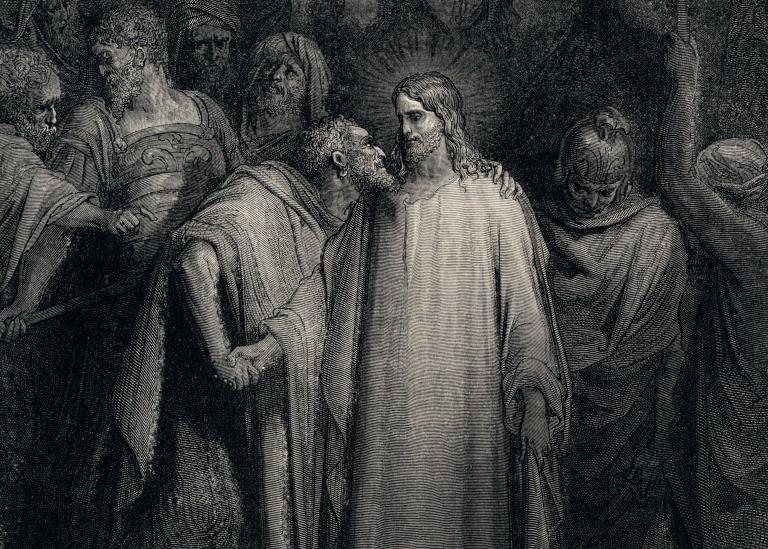You will have to trust me on this. The difficulty in writing a review of David Vermont’s debut novel is that I cannot give away what makes it most worth reading. That would be a spoiler. But all this book’s true power is in its climax. I almost wonder I did not figure it out myself—that I did not see it coming. There is a glaring hint in the book. (I won’t tell you where it is.)
What I will tell you is that The Last Confession of the Vampire Judas Iscariot is one of the most interesting blends of literary genre that I have read in some time. It is part vampire story, part historical novel, part narrative of the wandering Jew, part novel of ideas. It is part narrative of spiritual redemption. Its strength, in mixing all these genres, is that it also avoids all their clichés.
Here is the premise. Judas Iscariot, after betraying Christ and hanging himself, was resurrected by Satan and became a vampire. He remains ever alive, to battle through history such saints as John Vianney and Maximilian Kolbe. In this century he battles another priest—the hero of the novel, Fr. Raymond Breviary. The result of their encounter is both entirely appropriate and entirely unexpected.
I am impressed by a vampire novel that doesn’t involve a lot of the graphic nature of the genre. Nor will you find sexual undertones, which (in my view) aren’t erotic so much as they are boring. There is none of that in this novel. Mr. Vermont uses the vampire legend less for its own sake than for its theological implications. And he has the Catholic theology of blood exactly right. Judas as vampire is an antitype of the Eucharist. In fact, it reminds me of something C.S. Lewis says in The Screwtape Letters, that Satan can do no original thing but only parody what God has already done.
I am impressed too by a vampire novel that avoids its latent anti-Catholicism as well as all its clichés. Mr. Vermont is Catholic, but you should not expect Judas to be undone by rosaries or crucifixes or holy water. In fact, he is undone by something much more at the heart of Catholicism. (Though I cannot give it away, lest I spoil the novel for you.)
I am impressed, last, by a novel of the wandering Jew that avoids its clichés. Judas is not Cain; nor is he aimless, but he has a purpose. He is not just trying to keep himself alive by blood. He seeks something from John Vianney, from Maximilian Kolbe, from Raymond Breviary. It is only Fr. Breviary, in the end, who understands what will both defeat Judas and give him what he is really seeking. He is able to do so because he is the first to develop a real relationship with Judas.
Mr. Vermont uses all these traditions, but his novel is not defined by them. It reorders genre for its own particular purpose.
It is important that I not say too much lest I give too much away. The climax of this novel is surprising and it is also potentially controversial but has the strength of forcing us to ask how much we really believe what we say about Christ. It forces us to ask whether we mean what we say when we talk about how Christ defeats evil. The climax is worth all the time you spend to read up to it.
The Last Confession of the Vampire Judas Iscariot is not a perfect novel; no first novel is. It has weaknesses. One example: The characterization of Fr. Breviary is not well-drawn enough to explain why his bishop places so much trust in him, or why he figures out what saints like Fr. Vianney and Fr. Kolbe were not able to. And I would rather Judas the vampire had met Kolbe somewhere other than Auschwitz. The gravity of that horror seems trivialized by a vampire motif. We will have to suspend disbelief; things like that are common in first novels. But the ending more than makes up for these things. I don’t think any other novelist has ever done with Judas what Mr. Vermont does. (And I don’t just mean the teeth.)
***
If you like the content on this blog, your generous gift to the author helps to keep it active. I remember all my supporters in my Mass intentions each week.











